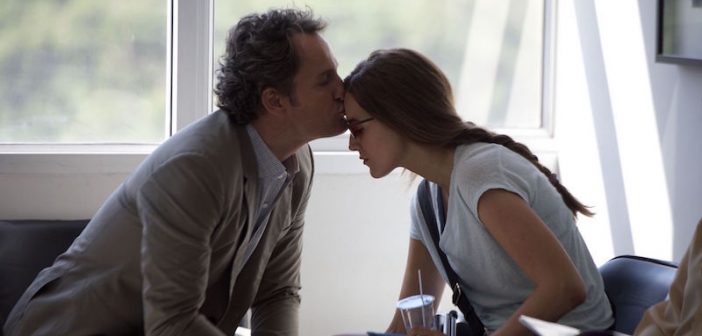All I See Is You is the latest psychological thriller by Marc Forster (Monster’s Ball, World War Z). The premise itself is intriguing, telling the story of Gina (Blake Lively), who has been blinded in a traumatic car crash as a young girl. Now a woman, Gina has grown accustomed to a world without sight, and relies on her doting husband, James (Jason Clarke) to be her eyes and window to the world.
But, as it turns out, Gina’s past blindness has been bliss. After undergoing a corneal transplant that restores sight to her right eye, Gina realises her life and marriage are not what they seemed. With her sight restored, Gina gains a new sense of self and a fierce independence, which rattles and threatens James. He is immediately insecure, realising that a wife who can see is also one who can leave. Gina steadily increases her newfound voice in the relationship, even becoming sexually dominant in bed. One of the film’s more memorable scenes show Gina tying up and blindfolding James, to which he responds with extreme discomfort and contempt.
Truly seeing herself as a woman for the first time, Gina also begins to dress more sensually and take pride in her appearance. Suddenly, however, Gina begins to lose her sight again, and the circumstances surrounding this regression seem shady, to say the least.
Style-wise, All I See Is You is full of kaleidoscopic shots and lens distortions that provide an interesting insight into Gina’s sightless world. A swim in the pool looks like an entire ocean; flashes of light and sound bubble together in a crowd; sex is imagined as a chaotic mishmash of body parts. While refreshing at first, Forster becomes hopelessly self-indulgent with these shots, repeating them over and over and over until all artistic value or meaning is lost.
Running at 102 minutes, the movie gets draggy in setting up its premise and showing Gina navigating her new life. Forster takes his time building up the tension in Gina and James’ relationship – with James’ many microaggressions and Gina’s hints at disappointment at her suddenly-clear reality – but just as the story seems to be reaching its climax, it ends.
The film also fails to make use of the unique beauty of its Thai and Spanish locations. While the setting in Bangkok was a deliberate choice (Forster wanted to heighten Gina’s feelings of isolation and helplessness in a foreign land), the film itself fails to bring across that sense of foreignness and unfamiliarity.
Despite an interesting concept and boldly experimental direction, All I See Is You ultimately fails to see beyond style to present something deeper than face-value. It is ambitious in concept but falls disappointingly short of its vision.
All I See Is You (R21) opens in Shaw Theatres on 16 November 2017.





![[GIVEAWAY] Disney on Ice: Find Your Hero Glides into Singapore This March!](https://asia361.com/wp-content/uploads/2025/01/Disney-on-ice-214x140.jpg)